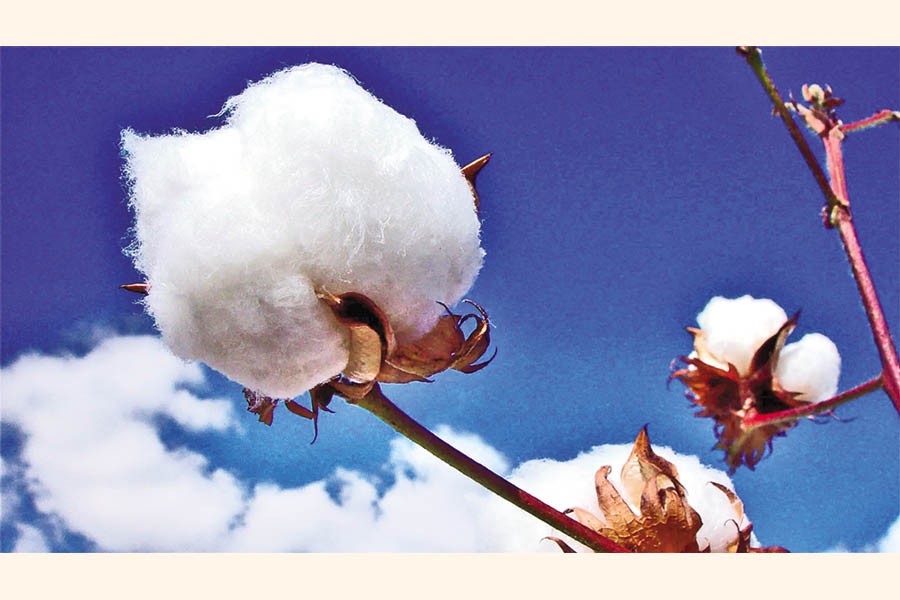
Published :
Updated :

The interim government will take an immediate measure to recognise cotton as an agricultural product so that growers can get low-interest loans as well as subsidy to boost cotton cultivation.
"There will be a positive decision in two or three months on increasing cotton production and easing cotton import," foreign adviser Md Touhid Hossain said on Monday without detailing the measure.

He, however, said 100-per cent local cotton production was not possible due to scarcity of land, but the production of raw material could be enhanced up to 25 per cent.
Mr Hossain made these remarks at a workshop styled 'The importance and potential of cotton cultivation in Bangladesh to save foreign currency' co-hosted by the Economic Reporters Forum (ERF), the Bangladesh Cotton Ginners Association and the Bangladesh Sudan Ginning Cotton Co Ltd (Sudan).
The event was organised in the ERF Auditorium in the capital.
The adviser also called on the National Board of Revenue (NBR) to take an immediate measure to withdraw existing 4.0-per cent advance income tax on domestically produced cotton.
He also advocated the cotton ginners' demand for a 'free zone warehouse' facility, saying that the facility could be offered to them to get fair prices and ensure adequate and timely cotton supplies.
About the country's LDC graduation, Mr Hossain said the decision that Bangladesh would graduate in 2026 was taken a long ago, but businesses sought more time to prepare themselves for this transition.
"Bangladesh will continue to enjoy duty-free access to the European Union for three more years until 2029 after graduation. I believe our businesses can prepare themselves within the three-year grace period."
The adviser reiterated that the government would not go for any time extension for the country's graduation from its least-developed status.
The government is taking steps to import cotton from the United States as a strategic move to avoid any further tax imposition by the Trump administration on Bangladesh's garment exports.
The US government has imposed tariffs on many countries since Donald Trump took office.
Although Bangladesh has already been exporting with tariffs in place, uncertainty over additional tariffs always looms, according to Mr Hossain.
Addressing the event, NBR member (customs, export and IT) Md Moazzem Hossain said talks were ongoing to extend the bonded warehouse facility to some sectors, adding that it could be started with cotton imports.
Mr Moazzem expressed his intent to present a proposal to the NBR officials concerned to withdraw advance income tax on locally produced cotton.
Bangladesh Cotton Ginners Association general secretary Golam Saber said cotton growers and ginners were deprived of getting agri-loans in the absence of the recognition of cotton as an agricultural product.
He said one-fourth of the required cotton could be cultivated domestically provided with necessary policy support, urging the government to recognise cotton as an agricultural product.
Cotton Development Board executive director Md Fakhre Alam Ibne Tabib also sought required policy support to help increase local cotton production up to 2.5 million tonnes annually without hindering food security.
At the event, the managing director of Bangladesh Sudan Ginning Cotton Co Ltd said they have already piloted three types of hybrid cotton seeds and higher quantity of cotton could be cultivated using a small area of land.
They have already proposed the Chattogram Port Authority and the Bangladesh Investment Development Authority for developing a free zone warehouse to save time and reduce yarn production costs, among others.
munni_fe@yahoo.com


 For all latest news, follow The Financial Express Google News channel.
For all latest news, follow The Financial Express Google News channel.